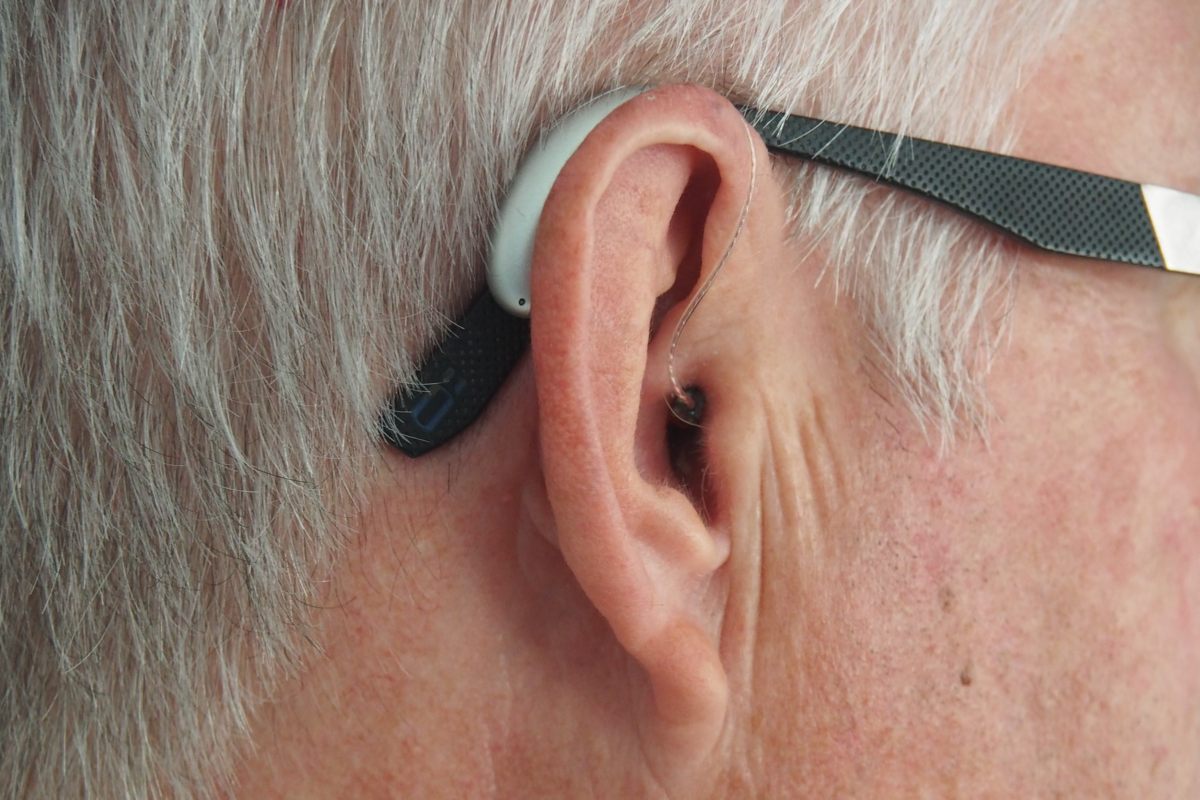Do you always have to repeat what you say when conversing with your aging parents? Or does it take a while for them to open the door or answer the phone?
If so, there’s not much to worry about as hearing loss is a normal part of aging. But if your parents refuse to get their hearing checked and wear hearing aids, then you have every right to be concerned.
Without good hearing, one can’t communicate effectively with others and hear all the different types of sounds required to live one’s life fully and safely. So, if you want to know how to deal with hearing-impaired parents and help them hear better again, read on.
Hearing Loss in Older People

As you get older, your hearing declines. And the common signs of hearing loss include finding it difficult to hear someone when there’s background noise or unless they’re facing you, to follow conversations, and to hear doorbells, alarms, or the phone ringing. You may also turn up the volume on the TV louder than others and hear a constant buzzing or ringing in your ears.
If a senior loved one has trouble hearing, they’re not alone. One in three people over 60 and two-thirds of people over 70 have a hearing impairment. And among the Baby Boomers, 15% of them are already affected.
What’s more, according to The State of Hearing Report 2019, which surveyed more than 7,000 people in five countries, almost 50% of those who took part to have a family member with moderate to profound hearing loss, and 86% of them say this affects their relationships.
Carolyn Rosenblatt, Forbes contributor and author of books about aging parents and clients, says that when her mother-in-law was 92 she always asked “what?” to most people who spoke with her, not realizing the problem.
Later, after having dinner with two of her friends, Mrs. Rosenblatt asked them how much they thought her mother-in-law missed in conversation with her, and they said 80%.
She finally persuaded her mother-in-law to get a hearing test and the results showed a mild hearing loss, but it was still recommended that she wear hearing aids. She got them and it made things so much better for her and everyone else.
Dealing With Hearing-Impaired Parents
Many older adults don’t realize their hearing is declining as they turn 65 or over and refuse to wear hearing aids. The reasons could be the denial of aging, pride, or not wanting to look old. It could also be because hearing aids are expensive, costing thousands of dollars, and they can be uncomfortable to wear and distort background noise.
So, what can you do when you have aging parents who are always asking “what did you say?” and don’t want to get hearing aids? Here are some tips:
1. Tell them everyone has noticed their hearing loss
Gather family members and explain to your parents how their hearing loss has become a burden, especially when you have to repeat almost everything you say to them. Most parents don’t want to burden their children.
2. Ask them to get a hearing test
You can ask your parents to get their hearing checked at a hearing clinic or via free apps and websites, such as the government’s free hearing test at Know Your Noise.
3. Find a hearing clinic near them
When choosing a hearing clinic, compare the services offered, the location, and the costs of hearing aids in case they’re recommended. If your parents can’t pay the costs, offer to help.
4. Accompany them to the clinic
People with hearing impairment often don’t interact with others and can end up becoming depressed and isolated, so offer to go with your parents to the clinic.
5. Help them choose the right hearing device
There are three types of hearing devices that may be recommended, and these are the standard removable hearing aids, plus state-of-the-art surgically implanted devices such as cochlear implants and bone-anchored hearing aids. Have a thorough discussion with your parents about each option to help them pick the one that best suits their needs.
6. Get an amplifier for their phone
Some phone amplifiers are free for people with hearing impairment and a doctor’s verification. If your parents have significant hearing loss, text-connected screens can also help them with communicating over the phone.
Helping seniors hear better again
Although hearing devices can’t restore hearing, they can surely and significantly improve one’s hearing, no matter how old you are. So, if your parents or other senior loved ones are deaf, urge them to get their hearing tested, don a pair of hearing aids, and use assistive listening devices.
Not only will they be able to hear better again, but it’ll also improve their life right away too. What’s more, it’ll be a huge relief for the people in their life, including you, as you won’t have to keep repeating yourself to them or wait a long time for them to answer the door or phone.
You May Like To Read:
Author: Luke Fitzpatrick











